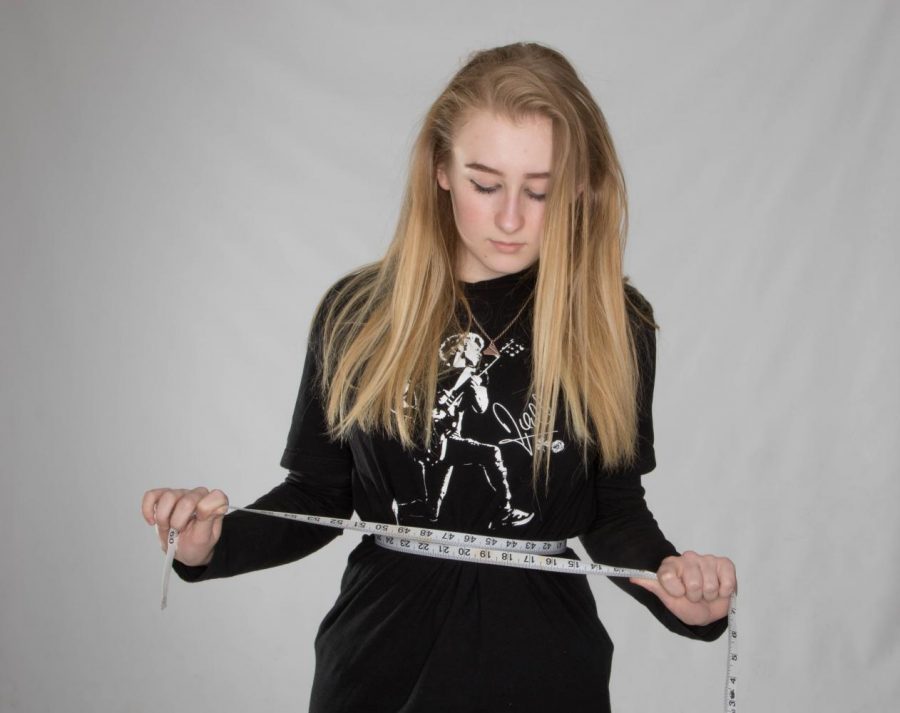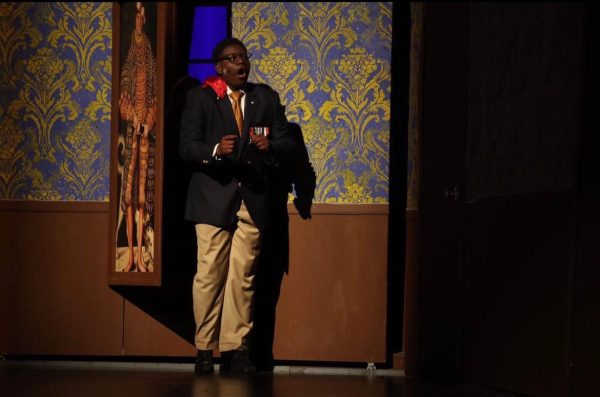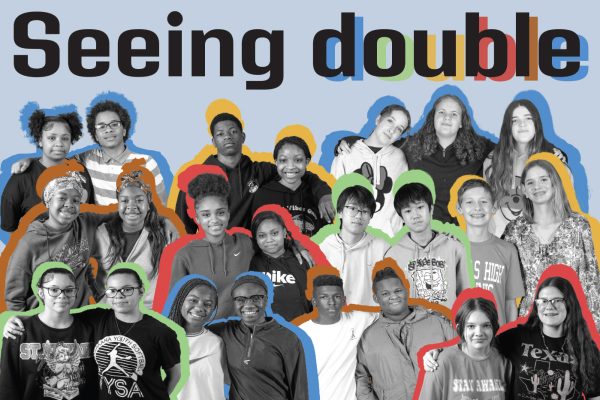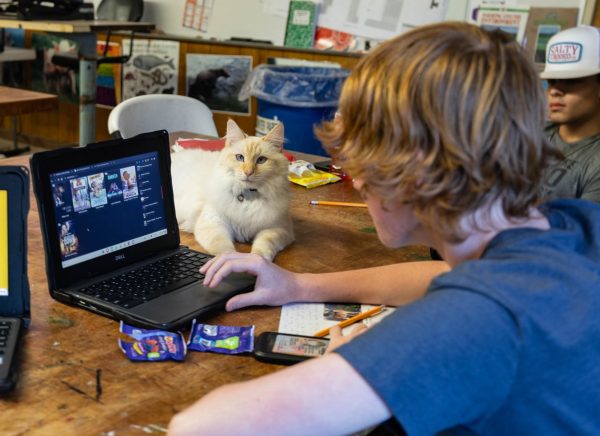Taking action to overcome eating disorder
June 28, 2017
To her, thin means pretty. To her, thin means compliments, and most importantly, to her impressionable, 9 year old mind, it means nasty kids at school will stop harassing her for her weight.
Being thin means everything.
Freshman Audrey Haskins grew up without blinders. The carefree youth she deserved was stolen from her too soon by her classmates, who smugly pointed out her flaws with accusing fingers and snarky voices that would sing in Haskins’ head every time she dared to look at herself in the mirror. Her body had been warped by the careless words of children who did not understand the power they held in their words.
“In elementary school I was bullied quite a bit, which really made the depression and anxiety that runs in my family so much worse,” Haskins said. “The bullying started because of my weight. I’d always been sensitive about it, and my friend had the same issue. We were obsessed with watching and reading about people with the same issues, and at one point, when we were nine, we made a pact to start with this diet where we cut our calorie intake to 900 [calories] a day.”
The calorie intake acted as the snowball effect in reverse. Instead of growing, the amount of calories they allowed themselves decreased to unhealthy levels as time went on.
“It was horrible, and I wanted to stop, but not more than I wanted to get smaller,” Haskins said. “Especially when a classmate’s mother commented on my weight loss. I had never been so happy.”
Getting thinner dictated her entire life. In her mind, if she wasn’t getting thinner, she was only falling behind. If she wasn’t getting thinner, it meant the comments of encouragement would be replaced with the snide remarks from her peers that used to sink her down. At the rate she was going, it seemed nothing could stop her. That was until the pills became part of the equation to make sure the number on the scale was low enough.
“When we were 10 years old, my friend would buy different pills for us to lose weight,” Haskins said. “My friend took too many [pills] that year, thinking she could handle it, and sent herself to the hospital.”
This completely changed her life. She had gotten so accustomed to having a routine that when there wasn’t one anymore, her world was brought to an abrupt stopping point.
“When I found out she’d been sent to the hospital, I was terrified. She was the only person I had connected with in the entirety of my childhood,” Haskins said. “At the same time though, I was mad at her because she told my mom that I was taking pills too.”
While she was forced to loosen her strict diets and completely stop taking pills, it did not silence the voices she had grown up having to listen to about her weight. As she entered her teenage years, her reflection in the mirror began to haunt her once again.
“I’ve constantly had to battle with different eating disorder tendencies,” Haskins said. “I’m a very picky eater now, and I obsess over different details when it comes to food. I can’t eat at school or in front of friends because I’m terrified of their judgements, and when I haven’t eaten all day, I always wish that I wouldn’t have to. I have to force myself to eat.”
Haskins is constantly faced with the threat of relapse along with the perpetual feelings of discomfort in her own body.
“It’s scary how I can miss it sometimes, even the feeling of not eating,” Haskins said. “I’m still uncomfortable with my weight. I was on the swim team until I was 10, and I loved swimming more than anything in the world, but I quit because of it. I haven’t been in a pool since then, which sucks because a lot of my friends love swimming and I really miss it. I can’t wear or do certain things out of fear someone will see a part of my body that I hate.”
This fear stemmed from the comments she grew accustomed to hearing as a little kid, unaware that the number on a scale could have such an immense impact on how people viewed a person. She carried that fear with her throughout her life and struggles with others’ opinions even now.
“That’s why I get so quiet and nervous when I’m talking to people for the first time–the second I start talking to [someone,] my thoughts immediately go to what [their] opinions might be on my weight,” Haskins said. “I don’t want to feel held back because my confidence isn’t where I want it to be just yet. I want to be able to have a friendship or a relationship with someone without feeling like they deserve better, not only because of my weight, but because of all that I can’t do because of my previous eating disorders.”
Haskins has begun to realize that if she has any hope in getting better, she must first be able to look at her situation–her reflection–and see that she deserves better than what she puts herself through. Understanding what started the domino effect is the first step to learning how to put the shards of her soul back together.
“My eating disorder may not have gotten so bad if it wasn’t because I was already in the worst mental state I’d ever been in, but my anxiety and depression now mainly stem from my weight and view of myself,” Haskins said. “It feels like my anxiety will never leave if my weight isn’t perfect, and I’m only just now beginning to fall back into depression, all because my anxiety is getting worse. It’s a vicious cycle, but I believe that I can beat it and become the happy, confident person I’ve always wanted to be if I play my cards right. I have to stop with the negative thoughts. The second I find the slightest something that I like about myself, in or out, I tell myself it isn’t good enough and that I don’t deserve to like anything about myself. Realizing that I do this is a good first step to stopping these thoughts and appreciating who I am.”
She has begun to take a stand for herself, to find the confidence to look at her past and realize that she has the power to grow from what she came from. She surrounded herself with a symphony of beautiful things rather than the comments made about her body.
“This is the first year of my life I’ve really started taking action because I’ve finally processed that I get no do-overs. I don’t know what actions I’m supposed to take, or what would be best for me, seeing as I only really began helping myself five months ago, but for now I’m surrounding myself with music, acting and writing,” Haskins said. “I’m finally allowing myself to accept that people can like me despite my exterior, and I’m making friends, which I didn’t know could be so great.”





















